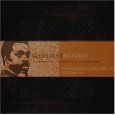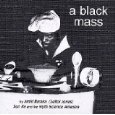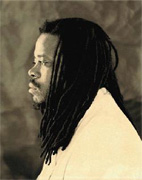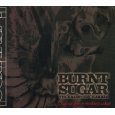We continue a dialogue we began on these pages, a fire that was further stoked by a thoughtful Facebook post by trumpeter Sean Jones and Greg Osby’s subsequent, typically pointed, follow-up. The last two weekends have revealed other young artists who are invested in the kinds of audience-embracing (and therefore audience developing/sustaining) bandleadership we’ve been espousing — as opposed to the aloof, artistically self-absorbed, you-should-feel-priveleged-to-witness-my-high-toned-musical-exploits position of a few too many bandleaders. You know the type: stroll out onstage indifferently, launch directly into a 25-minute piece, followed by an entire set in total silence (verbally-speaking), then at the end of the set mumble some incoherency or other that is supposed to serve as a set list, quick & indecipherable introduction of the cats, then off the stage as indifferently as they entered. And you the audience are supposed to be thrilled and honored that they got outta bed that morning — despite the fact that the music left you at least mildly puzzled and you still don’t know who that was on drums.
Case in point on the doing-the-right-thing tip: guitarist Lionel Loueke November 8 at the Clarice Smith Performing Arts Center (University of Maryland), and vibraphonist Stefon Harris and Blackout at the Kennedy Center Jazz Club November 14. Stefon has been at it a bit longer than Lionel, so we’ll start with him. The vibes man was engaging, witty, and self-deprecating in his onstage patter; and humble about the responsibility of the band having "fun" and performing for his audience. He introduced each piece without going overboard, and was totally embracing and complimentary towards his band members, who he introduced extensively and appreciatively. And it was quite obvious that it wasn’t just talk, these guys were clearly having fun playing their original compositions in an acoustic-electro vein (keyboard and vocoder were in ample evidence) that comfortably scooped up the audience for a ride to places they may never have been before — and they ate it up like a gourmet meal.

Vibraphonist Stefon Harris and Blackout
Stefon brought the audience along in a manner that was thoroughly engaging and not off-putting as so many artists choose to do these days — failing to introduce their music or provide the audience with some manner of context, spewing attitude, and treating the audience as if it were their good fortune to be there — and not the artists’ good fortune to be performing before an audience of ticket-buyers. The band’s comportment was excellent, down to their appearance — including the fashion-forward saxophonist and purveyor of the vocoder, Casey Benjamin, replete with baby-blue patent leather kicks! Voila — the thrilled audience lined up in droves to purchase CDs and garner autographs from the entire band post-performance.
Speaking of originality, guitarist Lionel Loueke from Benin, West Africa is one of the more thoroughly inventive musicians of his generation; his way around the instrument is completely fresh, and to a technique that is obviously an amalgamation of his homeland and his subsequent experiences in the west, he adds an engaging solfeggio and non-verbal percussion. Here’s a deeply-intuitive musician who stands alone in his approach, yet does so in a completely comfortable manner that is not intimidating to his audience, but does indeed invite and encourage their curiosity along for the ride. From his various introductions, which are delivered with an ease and humor that further encourages an attentive audience, Loueke is deeply complimentary of his bassist and drummer who’ve been with him for ten years and were schoolmates of his at Berklee. Their level of communication is both warm and inventive and clearly they enjoy each other’s company; and they obviously enjoy bringing the music to the audience.

Lionel Loueke
In the case of both Stefon Harris’ Blackout and Lionel Loueke’s trio, both bands were dressed neatly and fashionably, appearing as if they also cared about that part of their decorum. I should add that this concern is not about encouraging suits & ties or more formal attire, which are more appropos on certain occasions and for certain (ahem… more conservative) stylistic approaches, but not all. For an excellent recent take on this particular part of the audience development equation and the jazz tradition, check out John Murph’s excellent recent piece and photo essay titled "Who Ever Said jazz Had To Be Drab" at www.theroot.com.
Stefon Harris and Blackout’s latest release is Urbanus (Concord Records). Catch up with Stefon at www.stefonharris.com.
Lionel Loueke’s cooperative trio Gilfema has two releases on the Oblique label; his Blue Note Records debut is Karibu, and his follow-up Mwalitu has been announced for February release. Mwalitu will feature Lionel’s Gilfema mates and touring rhythm section, bassist Massimo Bioccati and drummer Ferenc Nemeth, plus duets with Angelique Kidjo, Esperanza Spalding, Richard Bona, and Marcus Gilmore. Stay in touch with Lionel at www.lionelloueke.com.





